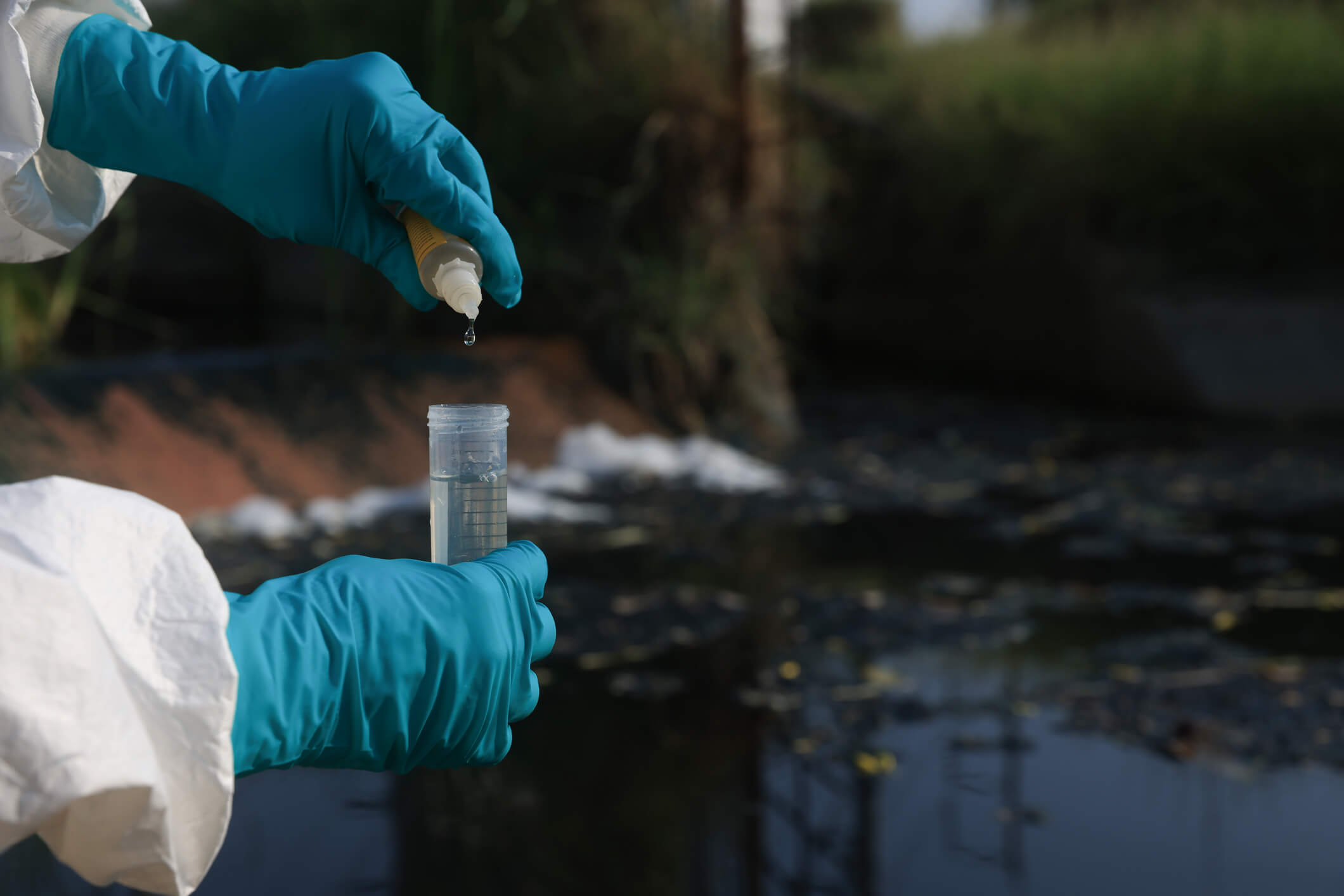Author: Jeff Ramey, Melissa Hart, and Robert Hanley | January 25, 2023
On January 6, 2023, the United States Environmental Protection Agency (USEPA) announced the automatic addition of nine additional per- and polyfluoroalkyl substances (PFAS) to the Toxics Release Inventory (TRI) reporting requirements for the 2023 reporting year (due July 1, 2024). This brings the list of PFAS for reporting year 2023 to a total of 189 PFAS. PFAS were originally added as TRI reportable compounds by the National Defense Authorization Act of 2020 (NDAA 2020), which includes ongoing criteria for adding additional PFAS to the TRI reportable list. These criteria have resulted in a longer list of TRI reportable PFAS compounds each subsequent year.
Related Services
What PFAS were added and are they in your inventory?
The nine additional PFAS include four PFAS compounds that were declassified as confidential business information (CAS numbers: 2728655-42-1, 2738952-61-7, 2744262-09-5, and 2742694-36-4) in an update to the Toxic Substances Control Act (TSCA) inventory in February 2022, and five PFAS associated with the final toxicity values for perfluorobutanoic acid (PFBA) (CAS numbers: 375-22-4, 45048-62-2, 10495-86-0, 2966-54-3, and 2218-54-4). NDAA 2020 includes a provision that automatically adds PFAS to the TRI list once the USEPA finalizes a toxicity value. For these five substances, USEPA issued toxicity values in December 2022.
As required by the Emergency Planning and Community Right-to-know Act (EPCRA), if your facility manufactures, processes or otherwise uses one or more of these nine chemical substances, you should begin tracking such activities beginning January 1, 2023.
What do you need for Reporting Year 2022?
Again, the nine PFAS added in 2023 will not require reporting until 2024. The list of TRI reportable PFAS for reporting year 2022 (due July 1, 2023) remains 180 PFAS listed in 40 CFR Part 372.65 (d) and (e). Currently, releases of PFAS are subject to 100-pound manufacturing, processing or otherwise using thresholds established by the NDAA 2020. If your facility meets any one of these three thresholds, then it must report for all activities for that chemical. Currently, reporting is not required if a PFAS is present in a mixture below the de minimis exemption (1% for TRI-listed PFAS and 0.1% for perfluorooctanoic acid (PFOA)). A December 2022 proposed rule would eliminate the de minimis exemption for PFAS. USEPA believes this would increase the number of TRI-listed PFAS compounds reported in future reporting years; however, the de minimis exemption is still applicable for reporting year 2022.
TRC’s PFAS Reporting Tool – TRI Reporting
TRC has the expertise and the tools to guide our clients with assessing the presence of PFAS compounds used at a facility and TRI reporting. We have developed a proprietary PFAS Reporting Tool that simplifies the identification and assessment process for determining the reportability of PFAS chemicals subject to TRI and the current and historical facility usage of PFAS. By working with one of our experienced chemists to guide the evaluation, use of this tool will enable a faster, more comprehensive inventory of potential PFAS chemical usage for compliance reporting, can help identify substitute products to reduce PFAS usage in the future, and can identify potential PFAS use issues with liability consequences.

PFAS Reporting Tool
TRC created a PFAS Reporting Tool that makes identifying the chemicals you process, use or manufacture at your facility easier, faster and more comprehensive.

We Can Help Simplify TRI Reporting for PFAS
TRC’s dedicated team of PFAS experts are ready to help you conduct your annual TRI reporting in a timely and accurate manner to ensure compliance with TRI requirements and better identify the potential liabilities associated with PFAS usage during due diligence. We are on the forefront of emerging PFAS regulations and guidance and can strategically guide you through the challenging process of addressing PFAS reporting obligations, identifying potential contamination concerns, and managing the ever-evolving regulatory environment and technical uncertainties.
For more information on TRI reporting and PFAS analysis, contact:
Sharing Our Perspectives
Our practitioners share their insights and perspectives on the trends and challenges shaping the market.

Changes to EPA’s Risk Management Program (RMP) Regulations Are Coming
April 14, 2023
Changes to the Risk Management Program (RMP) regulations were signed into a final rule on February 27, 2024, by EPA Administrator Michael S. Regan.

EPA Finds Trichloroethylene Presents Unreasonable Risk in Final Risk Evaluation
April 6, 2023
On Jan 9, 2023, the United States Environmental Protection Agency (EPA) revised the Toxic Substance Control Act (TSCA) to reflect a new risk determination for trichloroethylene (TCE).

Proposed Use of a Hazard Index for PFAS National Primary Drinking Water Regulation (NPDWR)
April 4, 2023
The Proposed MCL and MCLG for the four PFAS, PFNA, PFHxS, GenX, and PFBS, considers their toxicity as additive. The EPA has proposed a HI of 1.0 as the MCL and MCLG for the four PFAS combined.

Using the R2 Guidance in Indiana
March 21, 2023
TRC outlines the new R2 Guidance in Indiana

Routinely Evaluating the Health & Effectiveness of Integrated Systems to Manage EHS/ESG Risks – Part I
March 1, 2023
Once established, an EHS/ESG management system must be routinely evaluated to ensure it remains effective to identify and control risks, as well as accommodate and adjust for changes that occur to/within the organization.

Consequences of a Lowered NAAQS for PM2.5
February 16, 2023
TRC breaks down the significance of EPA lowering the NAAQS for PM₂.₅

EPA Announces $2 Billion in Funding to Address Emerging Contaminants in Drinking Water
February 14, 2023
Environmental Protection Agency Administrator Michael Regan announced $2 Billion in infrastructure funding to help the nation’s rural water supplies.

EPA Publishes Effluent Guidelines Program Plan 15
February 14, 2023
The EPA announced updated effluent limitations guidelines under Plan 15, focusing on the evaluation and rulemaking process for per- and polyfluoroalkyl substances (PFAS) discharges.

Phase I ESA ASTM Standard Update: The Wait is Over
December 21, 2022
The USEPA published a Final Rule making the ASTM E1527-21 Phase I ESA standard AAI compliant.

Proactive Enforcement is Key in the EPA FY2022-2026 Strategy
October 19, 2022
A core element of the EPA FY2022-2026 Strategic Plan focuses on environmental compliance.

Preparing for EPA Inspections in Environmental Justice Communities
October 4, 2022
The EPA Office of Enforcement and Compliance Assurance Have Expanded Goals to Strengthen Enforcement and Protections Within EJ Communities

New National Emerging Contaminants Research Initiative
September 12, 2022
The Executive Office of the President of the United States announced a National Emerging Contaminant Research Initiative

NERC Proposes Implementation Guidance for PRC-019-2
August 22, 2022
NERC has proposed implementation guidance for PRC-019-2, the standard that verifies coordination of generating unit facility or synchronous condenser voltage regulating controls, limit functions, equipment capabilities and protection system settings.

Optimizing EHS/ESG Information Management and Reporting Systems by Leveraging Innovative Digital Technology Solutions
August 10, 2022
A single, integrated enterprise wide EHS/ESG IMS can significantly improve performance and communicate progress towards organizational requirements and goals.

Revisions to FAC-001 and FAC-002 Submitted for FERC Approval
July 12, 2022
Reliability Standards FAC-001-4 and FAC-002-will resolve uncertainty regarding the meaning of “materially modify” under the currently effective standards.

FERC Order No. 881-A Has Implications for NERC Compliance Programs
June 23, 2022
Updated Order will have significant impact on NERC compliance programs related to both PRC standards and facilities ratings. Utilities should review the Order’s requirements and prepare for changes needed to remain compliant.

Integrating Sustainability, Digital Connectivity and Design Optimization in Wastewater Treatment Systems
June 20, 2022
Some organizations rarely think about water and wastewater treatment, until there is a problem. American industry depends on the ability to treat wastewater discharges while complying with regulatory standards and addressing emerging contaminants. If wastewater treatment fails, our environment is negatively impacted, and companies are exposed to shutdowns, delays and fines.

Climate Action and Environmental Justice are at the Forefront of EPA’s Strategic Plan
June 14, 2022
The EPA issued its Fiscal Year 2022-2026 Strategic Plan. Although the strategic plans emphases often change with administrations, we can be reasonably certain that the Plan reflects priorities through 2024.

NERC’s Revised PRC-024-3 Standard for Inverter-Based Generation Effective in October 2022
May 11, 2022
Changes to PRC-024-3 in support of inverter-based generation performance are going into effect in October of this year. Interconnection programs and documentation procedures may need to be updated in order to maintain compliance.

FERC Issues Notice of Inquiry Regarding Dynamic Line Ratings
April 25, 2022
There are significant technical challenges involved in implementing Dynamic Line Ratings in the planning and operation of utility systems. Utilities should be prepared to modify their NERC compliance programs as necessary to address the potential introduction of DLR in their businesses.

Why Are ESG Frameworks Important?
April 13, 2022
ESG standards significantly impact long-term growth, leading many companies to integrate ESG reporting into their corporate social responsibility (CSR) strategies. ESG frameworks are broad and diverse, and establishing a reporting system that covers your industry’s most relevant metrics can be challenging.

EPA Coal Ash Compliance Expectations Updated
March 28, 2022
New EPA Communications highlight new Coal Combustion Residual compliance expectations, a shift from the current program.

New NERC Guidance Supports the Implementation of Grid Forming Inverters
March 8, 2022
NERC has issued a new report highlighting the key attributes of various inverter controls to support proper implementation and to protect reliability.

NERC Recommends Approaches for Underfrequency Load Shedding Programs
February 24, 2022
In a recently released reliability guideline, NERC recommends additional approaches for Underfrequency Load Shedding (UFLS) program design to help utilities effectively consider the effects of Distributed Energy Resources (DERs). The guidance was developed to address the accelerated transition of the power system to locally installed, decarbonized resources that depend on inverters. These new technologies introduce operational controls issues into the electric grid. UFLS data gathering and analysis methodologies may require modification to address reliability risks.

NERC and FERC Recommend Protection System Commissioning Improvements
January 18, 2022
Between 18 and 36 percent of reported utility misoperations were attributed to issues that could have been detected through a properly implemented PSC.

FERC & NERC Issue Joint Report on Freeze Reliability Failures
December 15, 2021
The in-depth report outlines twenty-eight recommendations to address freeze reliability failures, including operating practices and recommendations for NERC standards modifications surrounding generator winterization and gas-electric coordination.

NERC Accelerates Additional Cold Weather Standards Changes
November 22, 2021
At its November 2021 meeting, NERC’s Board of Trustees took aggressive action to advance critical cold weather Reliability Standards. Most notably, the group approved the 2022-2024 Reliability Standards Development Plan, which prioritizes standards projects for the coming years including a resolution to include new cold weather operations, preparedness and coordination standards as high priority development projects.

OSHA’s National Emphasis Program on Heat-Related Illness and Injuries
November 3, 2021
On September 20, 2021 in an OSHA National News Release, OSHA published a memorandum establishing an enforcement initiative that is designed to prevent and protect employees from heat-related illnesses and death. This initiative, which develops a National Emphasis Program (NEP) on heat inspections, is an expansion of an already existing Regional Emphasis Program (REP) in OSHA’s Region VI, which covers Arkansas, Louisiana, New Mexico, Oklahoma and Texas.

New Potential Compliance Standards Identified at FERC Technical Conference on Reliability
October 18, 2021
With a focus on the reliability impact of extreme weather and the shortcomings of current system planning approaches, both NERC and FERC conference participants opened the door to potential forthcoming compliance standard enhancements or changes.

NJDEP Implements New Jersey Environmental Justice Law Through Administrative Order
October 5, 2021
On September 22, 2021, the New Jersey Department of Environmental Protection (NJDEP) Commissioner announced the issuance of Administrative Order (AO) No. 2021-25 to implement New Jersey’s Environmental Justice (EJ) Law. This order is effective immediately, and applicants seeking to site new major source facilities, renew major source permits or expand existing facilities with major source permits (e.g., Title V air permits) in overburdened communities are affected. There are more than 4.5 million people that live within 331 municipalities that are overburdened communities in the state of New Jersey.

OSHA Returns to In-Person Inspections As COVID-19 Restrictions Lift
August 4, 2021
The Occupational Safety and Health Administration (OSHA) is authorized by the Occupational Safety and Health Act of 1970 (OSH Act) to assure employers provide safe and healthful work conditions free of recognized hazards and by setting and enforcing standards and providing training, outreach, education and technical assistance. OSHA has recently announced the return to in-person inspections as COVID-19 restrictions begin to lift.

NERC Proposes Revisions to CIP-008
March 27, 2021
NERC’s CIP-008 standard aims to mitigate reliability risks resulting from a Cyber Security Incident by specifying incident response requirements. Newly proposed revisions would augment mandatory reporting to include incidents that compromise, or attempt to compromise, a utility’s Electronic Security Perimeter (ESP) or associated Electronic Access Control or Monitoring Systems (EACMS).

EPA continues to aggressively address PFAS wastewater with two new strategies
January 4, 2021
EPA takes steps toward PFAS wastewater and storm water permitting, and analytical methods for testing.

Ecological Risk of PFAS from AFFF-Impacted Sites
June 30, 2020
The facts on evaluating exposure to wildlife

Targeting Perfection in the Construction and Operation of Pipelines
October 18, 2019
To have an impact on the delivery or operation of a pipeline, it’s vital to eliminate the intra- and inter-company barriers, including those in the areas of communications, culture and technology.

PHMSA Publishes New Rules to Increase the Safety of Hazardous Liquid Pipelines and Gas Transmission Pipelines
September 25, 2019
The Pipeline and Hazardous Materials Safety Administration this week published important new rules aimed at improving pipeline safety.

NERC Calls for New Approach to Reliability Planning Due to Gas Supply Disruption Risks
December 14, 2017
A recently published NERC report concludes that as reliance on natural gas to meet electric generation requirements increases, additional planning and operational measures must be considered to mitigate power system reliability risks.

Creating Lasting Value While Preparing for California’s Approaching Climate Disclosure Laws (SB253 and SB261)
June 17, 2025
Prepare for California’s new climate disclosure laws (SB253 & SB261) with guidance to turn compliance into long-term business value.

What Hydrogen Production Technologies Qualify for the 45V Tax Credit?
February 26, 2025
The 45V Tax Credit, formally known as the “Credit for Production of Clean Hydrogen and Energy Credit,” became effective on January 10, 2025 when it was published in the Federal Register. The 45V Tax Credit is one of the 21 tax credits that were created or amended by the Inflation Reduction Act (IRA). Finalization of this tax credit is important news to hydrogen project developers and financiers.

SEC Rules in Favor of Climate-Related Disclosures
March 8, 2024
In a long-awaited climate ruling, the Securities and Exchange Commission (SEC) ruled 3-2 in favor of the climate-related disclosures on March 6, 2024.

EPA Proposes Rules for IRA-mandated Waste Emissions Charge for Methane
February 6, 2024
EPA proposed rules to implement the Waste Emissions Charge (WEC) program for facilities that exceed a waste emissions threshold

What You Need to Know about the EU Corporate Sustainability Reporting Directive (CSRD)
January 19, 2024
January 1, 2024, marks the start of the first reporting timeframe for companies in scope of the European Union’s Corporate Sustainability Reporting Directive (CSRD).

New Jersey Implements Landmark Environmental Justice Regulations
August 2, 2023
A new landmark Environmental Justice (EJ) law is now effective in New Jersey following a lengthy rulemaking process surrounding the New Jersey Department of Environmental Protection’s (NJDEP) Administration Order (AO) No. 2021-25. It is the first rule of its kind and the strongest EJ regulation in the nation.

EPA Proposes Regulation of Green House Gas Emissions
July 10, 2023
This article highlights the EPA’s proposed rules to regulate greenhouse gas emissions from power plants and the potential impact on new and existing fossil fuel-fired facilities.

Organizing for Project Success
June 22, 2023
Many organizations are establishing Project Management Organizations (PMOs) to improve project management within their organizations. While there can be many reasons for establishing a PMO, most are established to improve project management with respect to schedule, cost, quality and risk. This article provides an overview of factors to consider when deciding on which type of PMO is most suitable for your organization and how best to implement a successful and high-performing PMO.

New Executive Order 14096 Broadens Environmental Justice Initiatives
May 9, 2023
Executive Order 14096, Revitalizing Our Nation’s Commitment to Environmental Justice for All, seeks to deepen the Biden administration’s “whole-of-government” approach to environmental justice (EJ) by fully integrating the consideration of unserved and overburdened communities and populations into all aspects of federal agency planning and delivery of services.

Proactive Enforcement is Key in the EPA FY2022-2026 Strategy
October 19, 2022
A core element of the EPA FY2022-2026 Strategic Plan focuses on environmental compliance.

Preparing for EPA Inspections in Environmental Justice Communities
October 4, 2022
The EPA Office of Enforcement and Compliance Assurance Have Expanded Goals to Strengthen Enforcement and Protections Within EJ Communities

TRC Companies Inc. welcomes the Founder and Key Principals of ESG Advisory Firm Enzo Advisors, LLC
September 27, 2022
TRC Companies announces the expansion of its Climate Solutions offering and ESG capabilities with the addition of the Founder and CEO, and key members of Enzo Advisors, LLC

Climate Action and Environmental Justice are at the Forefront of EPA’s Strategic Plan
June 14, 2022
The EPA issued its Fiscal Year 2022-2026 Strategic Plan. Although the strategic plans emphases often change with administrations, we can be reasonably certain that the Plan reflects priorities through 2024.

TRC Companies Pledges to Achieve Net Zero GHG Emissions by 2040
April 26, 2022
TRC Companies, a digitally powered and environmentally focused global professional services firm, announced its commitment to achieve Net Zero greenhouse gas (GHG) emissions across its full value chain by 2040, aligning with the most ambitious aim of the Paris Agreement to limit global temperature rises to 1.5 °C.

Why Are ESG Frameworks Important?
April 13, 2022
ESG standards significantly impact long-term growth, leading many companies to integrate ESG reporting into their corporate social responsibility (CSR) strategies. ESG frameworks are broad and diverse, and establishing a reporting system that covers your industry’s most relevant metrics can be challenging.

How Does ESG Address Environmental Concerns?
October 22, 2021
When investors consider where to put their money, they may examine environmental, social and governance (ESG) criteria, learn about a company’s core values and decide if they align with their own. Young people, in particular, search out this information to make decisions that align with their morals.

What Is Environmental, Social and Corporate Governance?
October 10, 2021
Several key considerations help determine whether an investor decides to support a particular company. While many factors can tip the scales, investors are increasingly seeking out businesses that uphold higher standards. Therefore, companies should openly communicate their standards to make it easier for investors to understand their values.

NJDEP Implements New Jersey Environmental Justice Law Through Administrative Order
October 5, 2021
On September 22, 2021, the New Jersey Department of Environmental Protection (NJDEP) Commissioner announced the issuance of Administrative Order (AO) No. 2021-25 to implement New Jersey’s Environmental Justice (EJ) Law. This order is effective immediately, and applicants seeking to site new major source facilities, renew major source permits or expand existing facilities with major source permits (e.g., Title V air permits) in overburdened communities are affected. There are more than 4.5 million people that live within 331 municipalities that are overburdened communities in the state of New Jersey.

Cryptocurrency: The Environmental Threats and Opportunities
August 9, 2021
Cryptocurrency (also known as crypto) is taking the fintech industry by storm, despite the economic experts who still dismiss it as a viable form of currency. Although often criticized for this volatility, whistleblowers are also further shining a light on the severe toll that these digital currencies are taking on the environment.

Managing EHS & ESG Risks Through Integrated Systems Today and Beyond
July 22, 2021
It has been more than 50 years since the development and establishment of the federal Environmental Protection Agency (EPA) and the federal Occupational Safety & Health Administration (OSHA) which were formed to protect our environment and workplaces across the United States. Significant laws, policies and regulations followed to establish the “regulatory programs” that all applicable businesses and entities must address and meet to ensure these compliance-driven legislative programs would create a foundation to protect our society.

TRC Announces Collaboration with Greenstone Reinforcing Integrated ESG, Sustainability and Climate Risk Solutions
June 26, 2020
On September 22, 2021, the New Jersey Department of Environmental Protection (NJDEP) Commissioner announced the issuance of Administrative Order (AO) No. 2021-25 to implement New Jersey’s Environmental Justice (EJ) Law. This order is effective immediately, and applicants seeking to site new major source facilities, renew major source permits or expand existing facilities with major source permits (e.g., Title V air permits) in overburdened communities are affected. There are more than 4.5 million people that live within 331 municipalities that are overburdened communities in the state of New Jersey. The Administrative Order requires an enhanced public participation process that requires facilities to: Hold a public hearing meeting as determined by the Environmental Justice Law. To the extent consistent with applicable law, have a public comment period that is a minimum of sixty (60) days. If there is written request from members of the respective overburdened community, the public comment period may be extended by thirty (30) days to provide information related to “information regarding existing conditions within the overburdened community and potential facility-wide environmental and public health stressors that could result in adverse impacts upon the overburdened community were the regulated activity approved.” Respond to and address the concerns raised by individuals from the overburdened community during the public comment period, which may include the need to perform additional analysis as deemed necessary by the NJDEP. Solicit concerns from the overburdened community regarding environmental or public health stressors posed by the facility. Adhere to special conditions placed on permits approved by the NJDEP. Special conditions may be placed to avoid or minimize public health stressors to the maximum extent allowed by law. NJDEP has the authority to reopen or further extend the public comment period on a case-by-case basis, as consistent with applicable law and statues. Title V permit holders in overburdened communities in New Jersey must take steps to address new and multi-faceted environmental justice regulations and should do so in an effective manner to avoid business difficulties and manage public relations issues. This AO has the potential to significantly impact project schedules for new projects or facility expansions. Therefore, identifying EJ-related concerns during the planning phase is critical to a successful project and benefits both the business and the community.

COVID-19 and Implications for ESG Investing
June 3, 2020
This global pandemic has exposed business vulnerabilities and recalibrated material Environmental Social and Governance factors for investors.

Creating Lasting Value While Preparing for California’s Approaching Climate Disclosure Laws (SB253 and SB261)
June 17, 2025
Prepare for California’s new climate disclosure laws (SB253 & SB261) with guidance to turn compliance into long-term business value.

Regulators Update Design Storm Rainfall Depths in Response to Climate Science Projections and Recent Storm Data
August 3, 2023
Regulators are responding to anticipated increases in extreme rainfall events by updating design storm rainfall depth regulations.

New Executive Order 14096 Broadens Environmental Justice Initiatives
May 9, 2023
Executive Order 14096, Revitalizing Our Nation’s Commitment to Environmental Justice for All, seeks to deepen the Biden administration’s “whole-of-government” approach to environmental justice (EJ) by fully integrating the consideration of unserved and overburdened communities and populations into all aspects of federal agency planning and delivery of services.

TRC Companies Inc. welcomes the Founder and Key Principals of ESG Advisory Firm Enzo Advisors, LLC
September 27, 2022
TRC Companies announces the expansion of its Climate Solutions offering and ESG capabilities with the addition of the Founder and CEO, and key members of Enzo Advisors, LLC

Climate Action and Environmental Justice are at the Forefront of EPA’s Strategic Plan
June 14, 2022
The EPA issued its Fiscal Year 2022-2026 Strategic Plan. Although the strategic plans emphases often change with administrations, we can be reasonably certain that the Plan reflects priorities through 2024.

Why Are ESG Frameworks Important?
April 13, 2022
ESG standards significantly impact long-term growth, leading many companies to integrate ESG reporting into their corporate social responsibility (CSR) strategies. ESG frameworks are broad and diverse, and establishing a reporting system that covers your industry’s most relevant metrics can be challenging.

10 Takeaways from the COP26 Climate Meeting
November 17, 2021
There are compelling reasons to be optimistic about the outcomes of the COP26 meeting. Notably, agreement among all nations that more needs to be done, by both private and governmental bodies, to contain and mitigate climate change.

New Jersey Implements Landmark Environmental Justice Regulations
August 2, 2023
A new landmark Environmental Justice (EJ) law is now effective in New Jersey following a lengthy rulemaking process surrounding the New Jersey Department of Environmental Protection’s (NJDEP) Administration Order (AO) No. 2021-25. It is the first rule of its kind and the strongest EJ regulation in the nation.

New Phase I ESA Standard Will Affect Environmental Due Diligence
January 25, 2022
After years of review, revisions and discussions, the new ASTM E1527 Phase I Environmental Site Assessment (Phase I ESA) standard has been published. The new standard includes updates to definitions, clarifications on processes and requirements, and guidance for emerging contaminants.

Managing EHS & ESG Risks Through Integrated Systems Today and Beyond
July 22, 2021
It has been more than 50 years since the development and establishment of the federal Environmental Protection Agency (EPA) and the federal Occupational Safety & Health Administration (OSHA) which were formed to protect our environment and workplaces across the United States. Significant laws, policies and regulations followed to establish the “regulatory programs” that all applicable businesses and entities must address and meet to ensure these compliance-driven legislative programs would create a foundation to protect our society.

A billion-dollar BrewDog: TRC advises private-equity client on major craft beer investment deal
April 19, 2021
When one of America’s leading private-equity companies decided recently to buy a stake in one of the world’s fastest-growing craft-beer brewers, the deal team sought advice from TRC.

TRC Announces Collaboration with Greenstone Reinforcing Integrated ESG, Sustainability and Climate Risk Solutions
June 26, 2020
Renewable energy developers face an increasingly fast moving and competitive market. While opportunities abound, bringing projects online to meet demand comes with many technical and administrative challenges. In this episode of TRC Talks, our experts discuss how TRC’s fully integrated renewables delivery platform is helping move projects from concept to completion, faster and more efficiently.

COVID-19 and Implications for ESG Investing
June 3, 2020
This global pandemic has exposed business vulnerabilities and recalibrated material Environmental Social and Governance factors for investors.

TRC Brings Environmental Services to Manchester with Second UK Office
March 5, 2020
In continuing to expand our presence in a key British market, TRC is opening our second UK office in Manchester, England

Jeff Ramey
Jeff Ramey is a principal chemist with almost 20 years of professional experience in the environmental industry. Jeff serves as a technical lead for analytical forensics, data validation, fingerprinting, investigation, and remediation of emerging contaminants, PFAS, and well-established contaminants of concern. He has supported private and public clients, leading PFAS investigations and negotiating site-specific sampling and analysis plans and cleanup criteria with multiple regulatory agencies with absent or developing PFAS standards. He regularly presents on PFAS at technical conferences and contributes to trade organizations and stakeholder groups concerned with emerging contaminant regulations, reporting, and enforcement. Jeff is a member of TRC’s PFAS CORE Team where he developed TRC’s proprietary PFAS Reporting Tool.

Robert Hanley
Robert Hanley is a Senior Consultant at TRC, supporting transaction due diligence environmental and compliance assessments, and multimedia environmental compliance audits. He has a deep understanding of Toxic Substances Control Act requirements for chemical data reporting, new chemical Pre-Manufacture Notifications, and TSCA significant new use rules and notification requirements. His auditing experience includes specialized knowledge of RCRA and Toxic Substances and Control Act (TSCA) reporting and record keeping requirements. He also provides short-term, on-site environmental management support. Dr. Hanley holds a Ph.D degree in Biology from the University of Alabama, with a specialization in environmental engineering. Contact Rob at rhanley@trccompanies.com

Melissa Hart
Melissa Hart has over 30+ years of experience in private industry and consulting. Her environmental experience is focused on air pollution regulatory compliance; EPCRA/SARA compliance (including Tier II inventory, TRI reporting, and auditing); due diligence; air permitting; civil penalty calculations and enforcement negotiation; and Department of Homeland Security Chemical Facility Anti-Terrorism Standards (CFATS). Ms. Hart has worked in multiple industrial sectors, including aircraft and automotive assembly/manufacturing; automotive parts; food and beverage operations; miscellaneous metal fabrication; fertilizer plants; air filter fabrication; and miscellaneous surface coating operations. She holds a BS in Chemical Engineering from University of Missouri – Columbia.













































